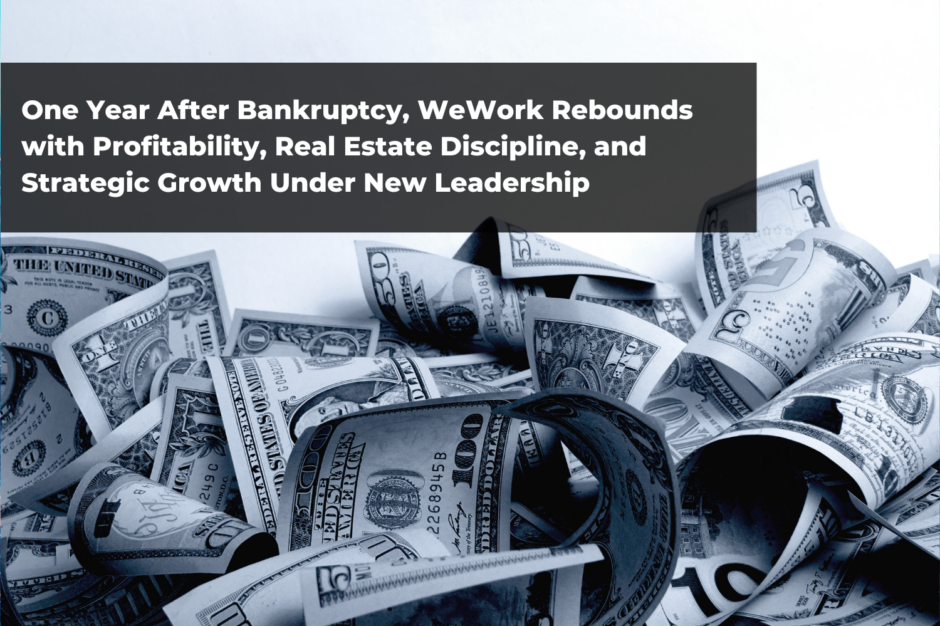One year after emerging from bankruptcy, WeWork is showing signs of stability, profitability, and strategic maturity as it rebuilds its reputation and operations under new leadership and ownership. After a dramatic fall from grace that culminated in a Chapter 11 bankruptcy filing in November 2023, WeWork has since undergone a sweeping overhaul, shedding billions in debt and hundreds of unprofitable leases.
At its 2019 peak, WeWork had become synonymous with coworking excess—operating 850 locations globally, bloated by a $47B valuation, celebrity-laden marketing, and a reckless expansion strategy. However, the COVID-19 pandemic and unsustainable rent obligations ($19B in liabilities vs. $15B in assets at the time of filing) exposed its vulnerabilities. After months of negotiations, the company successfully tore up over 100 leases and eliminated more than $4B in debt, officially exiting bankruptcy in June 2024.
Now privately owned and majority-controlled by real estate tech giant Yardi Systems, WeWork has narrowed its focus to around 170 North American locations and has posted six consecutive months of positive EBITDA, a milestone it never achieved before. New CEO John Santora, a seasoned Cushman & Wakefield executive, has brought a disciplined, real estate-first leadership style that has restored trust among landlords, tenants, and partners.
Key strategic moves post-bankruptcy include:
-
A $80M–$100M capital investment plan to upgrade WeWork spaces globally.
-
A hospitality training partnership with the Ritz-Carlton Leadership Center.
-
A pivot to management agreements where WeWork operates space on behalf of landlords, sharing profits instead of leasing outright—lowering risk and improving landlord alignment.
-
Continued expansion of its enterprise model, including nearly 1M SF of managed space for Amazon across major U.S. markets.
Industry leaders have praised the company's new transparency and discipline. During bankruptcy negotiations, WeWork kept open lines of communication with major landlords like Beacon Capital Partners and Steinhauer Properties, helping preserve key relationships.
Meanwhile, the flexible office sector has grown increasingly competitive, with brands like Industrious (now owned by CBRE) surpassing WeWork in number of U.S. locations. Nevertheless, WeWork remains a significant player, especially as demand for hybrid and flexible workspaces continues to reshape office usage. According to CBRE, office leasing activity jumped 18% in Q1 2025, and coworking operators are being increasingly tapped to help landlords activate underperforming Class-B and C properties.
Yardi’s role has been pivotal in WeWork’s post-bankruptcy transformation, supplying key data and analytics tools that improve space utilization insights and guide better leasing decisions. As the company shifts from its once chaotic startup culture into what insiders call “WeWork 2.0,” leadership insists it's now prepared to grow strategically—armed with experience, technology, and a renewed understanding of what works in today’s office market.


